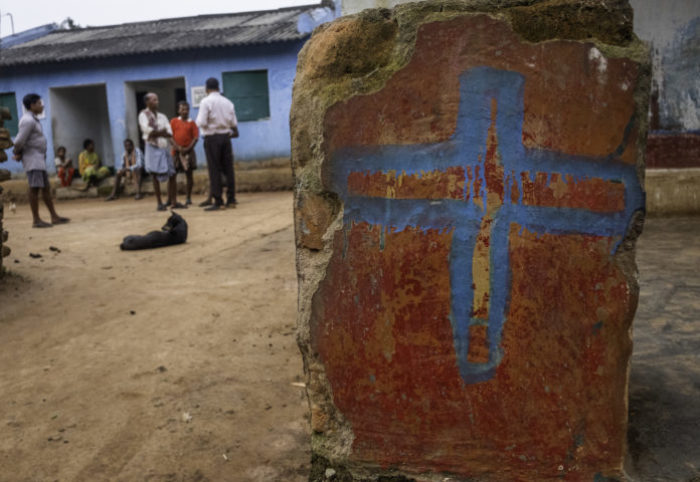Tribal Christians recount horrors of devastating spate of attacks carried out by Hindu nationalist mobs
'They would have killed me and my family had I not fled to the jungle'

Tribal Christians in the Indian state of Chhattisgarh continue to suffer the aftermath of a series of brutal attacks carried out by Hindu nationalists in recent months, resulting in more than 2,500 Christians becoming homeless and hundreds of homes being vandalized and looted.
“There wasn’t even a time for me to lock the door of my house before I fled to the jungle,” the U.S.-based persecution watchdog International Christian Concern quoted a distressed tribal Christian as saying.
The ferocity of the attacks has left many Christians feeling traumatized and constantly living in fear, ICC said.
“They would have killed me and my family had I not fled to the jungle,” a survivor, identified only as Pastor Kanan, was quoted as saying. “The phone call that I received from my friend saved my life … he alerted me about the furious mob that was advancing toward our village Gadhbengal carrying sharp weapons and sticks.”
A recent report by a fact-finding team said a series of attacks on Christians, who are tribal, or indigenous, took place from Dec. 9–18, 2022, in numerous villages in the two districts displacing about 1,000 Christians.
Their homes were vandalized and their churches and properties were attacked for refusing to “re-convert” to Hinduism.
On New Year’s Day, an anti-Christian mob of nearly 700 radicals mobilized in the Christian-populated area of Gadhbengal village, and destroyed homes and properties, ICC said, adding that around 200 Christians escaped the mob when they were alerted about rioters heading their way.
Later, a video, shared by Global Christian Relief, showed hundreds of protesters armed with rocks, iron rods and wooden sticks attacking the 50-year-old Sacred Heart Church in Narayanpur district’s Edka village on Jan. 2.
“The mob destroyed everything, the church and the presbytery,” Sacred Heart parish priest Fr. Jomon Devasia told UCA News at the time. “A tense situation prevails here.”
Two local leaders from the Hindu nationalist Bharatiya Janata Party led by Prime Minister Narendra Modi — Rupsai Salam and Narayan Markam — were among the accused.
Many of those affected also sustained serious injuries in the attack, ICC said.
Despite this, some Christians have returned to their villages, while others remain concerned about future attacks.
Attacks against tribal Christians have increased since radical Hindu groups launched a campaign in 2020 to stop the country’s tribal, or indigenous, people from converting to Christianity. These groups have been demanding that the government ban those who convert from receiving educational and employment opportunities.
Most tribals do not identify as Hindus; they have diverse religious practices and many worship nature. However, the government’s Census classifies them as Hindu.
In September 2020, tribal villagers vandalized 16 houses belonging to Christians from the same tribe in three separate attacks in Chhattisgarh, forcing most of the Christian women in those villages to flee into jungles for safety at the time.
Chhattisgarh is one of several Indian states with anti-conversion laws, and the violence has left the Christian community with little protection or recourse from the government, ICC noted.
While Christians comprise only 2.3% of India’s population and Hindus account for about 80%, proponents of such laws say they are needed to crack down on Christians or Muslims forcing or giving money to Hindus to persuade them to convert.
These laws typically ban conversion through coercion, allurement, fraudulent practices, marriage or misrepresentation. Hindu nationalist activists and groups have often used the laws to file allegations of forced conversion with police against religious minorities. The burden of proof falls on those accused to prove that conversions were not done in force.
ICC earlier quoted a local Christian leader as saying that the ongoing violence in Chhattisgarh had brought back “traumatic memories” of the attacks in Odisha state’s Kandhamal district, which is also a tribal-majority district.
The leader was referring to August 2008 when radical Hindu nationalists killed at least 39 Christians and destroyed 3,906 homes. “These incidents have shocked the entire Christian community in the state, and the sad thing is that the people in authority did not bother to help.”
The group Release International has predicted that persecution is likely to increase in India, where radical Hindus appear increasingly emboldened by the dominance of the nation's right-wing BJP government.
Religious freedom conditions in India have drastically deteriorated in recent years following the election of Prime Minister Narendra Modi and the rise of the BJP in 2014, a report by the group said.




























